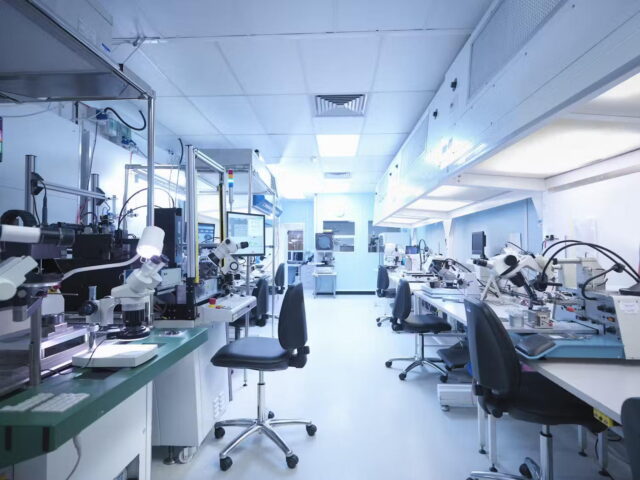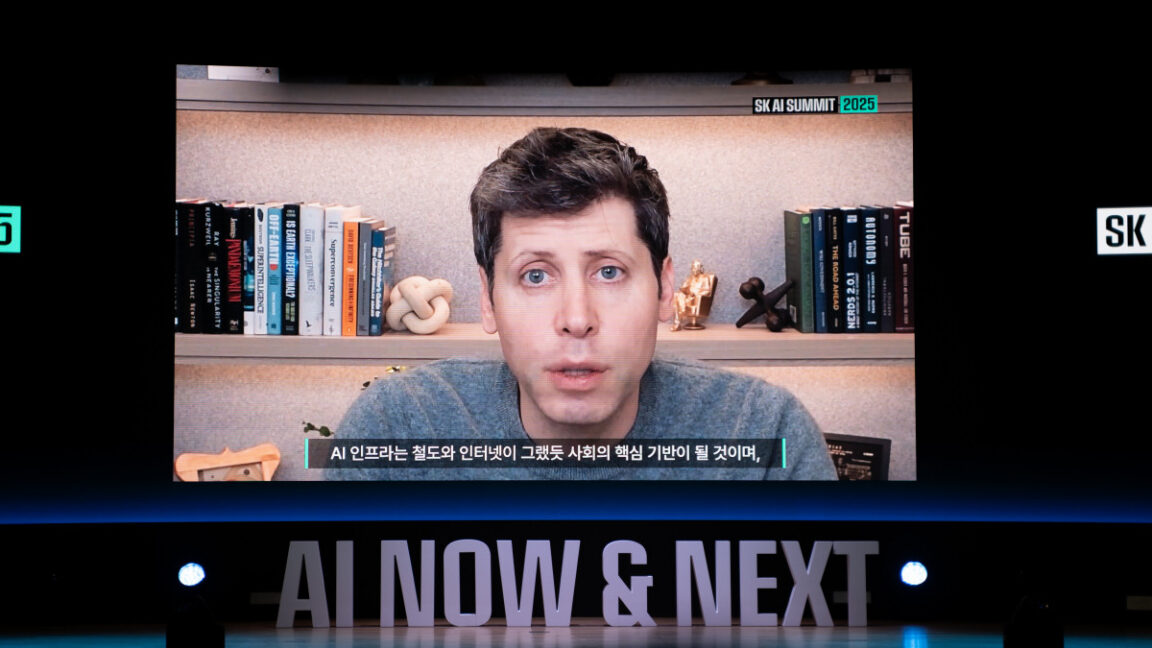Credit:
Brendan Smialowski/AFP via Getty Images
President Donald Trump alongside Office of Management and Budget Director Russell Vought.
Credit:
Brendan Smialowski/AFP via Getty Images
However, the full impact of the shutdown and the Trump administration’s broader assaults on science to US international competitiveness, economic security, and electoral politics could take years to materialize.
In parallel, the dramatic drop in international student enrollment, the financial squeeze facing research institutions, and research security measures to curb foreign interference spell an uncertain future for American higher education.
With neither the White House nor Congress showing signs of reaching a budget deal, Trump continues to test the limits of executive authority, reinterpreting the law—or simply ignoring it.
Earlier in October, Trump redirected unspent research funding to pay furloughed service members before they missed their Oct. 15 paycheck. Changing appropriated funds directly challenges the power vested in Congress—not the president—to control federal spending.
The White House’s promise to fire an additional 10,000 civil servants during the shutdown, its threat to withhold back pay from furloughed workers, and its push to end any programs with lapsed funding “not consistent with the President’s priorities” similarly move to broaden presidential power.
Here, the damage to science could snowball. If Trump and Vought chip enough authority away from Congress by making funding decisions or shuttering statutory agencies, the next three years will see an untold amount of impounded, rescinded, or repurposed research funds.

Credit:
Monty Rakusen/DigitalVision via Getty Images
The government shutdown has emptied many laboratories staffed by federal scientists. Combined with other actions by the Trump administration, more scientists could continue to lose funding.
Credit:
Monty Rakusen/DigitalVision via Getty Images
Science, democracy, and global competition
While technology has long served as a core pillar of national and economic security, science has only recently reemerged as a key driver of greater geopolitical and cultural change.
China’s extraordinary rise in science over the past three decades and its arrival as the United States’ chief technological competitor has upended conventional wisdom that innovation can thrive only in liberal democracies.
The White House’s efforts to centralize federal grantmaking, restrict free speech, erase public data, and expand surveillance mirror China’s successful playbook for building scientific capacity while suppressing dissent.
As the shape of the Trump administration’s vision for American science has come into focus, what remains unclear is whether, after the shutdown, it can outcompete China by following its lead.
Kenneth M. Evans is a Fellow in Science, Technology, and Innovation Policy at the Baker Institute for Public Policy, Rice University.
This article is republished from The Conversation under a Creative Commons license. Read the original article.


